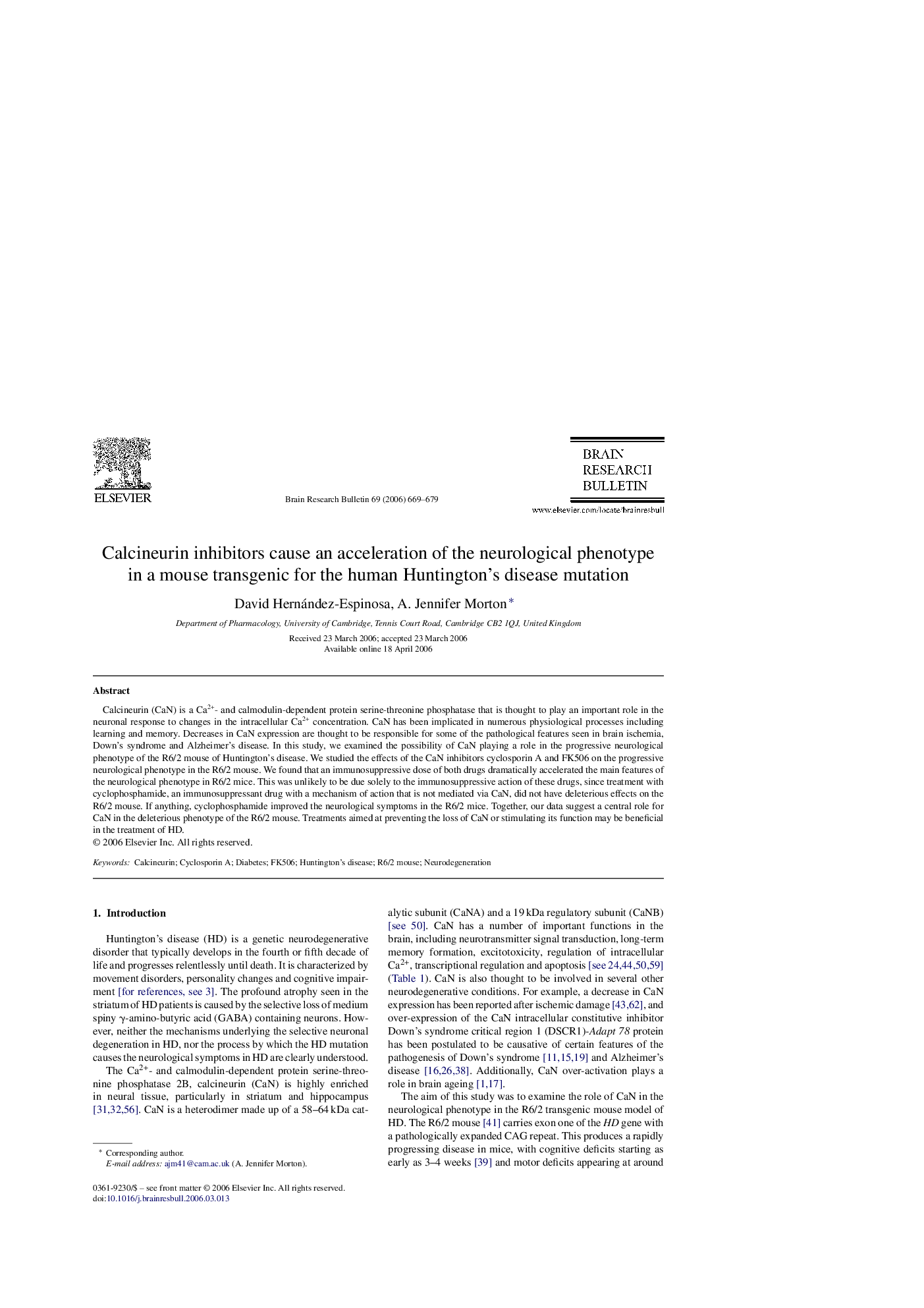| Article ID | Journal | Published Year | Pages | File Type |
|---|---|---|---|---|
| 4320320 | Brain Research Bulletin | 2006 | 11 Pages |
Calcineurin (CaN) is a Ca2+- and calmodulin-dependent protein serine-threonine phosphatase that is thought to play an important role in the neuronal response to changes in the intracellular Ca2+ concentration. CaN has been implicated in numerous physiological processes including learning and memory. Decreases in CaN expression are thought to be responsible for some of the pathological features seen in brain ischemia, Down's syndrome and Alzheimer's disease. In this study, we examined the possibility of CaN playing a role in the progressive neurological phenotype of the R6/2 mouse of Huntington's disease. We studied the effects of the CaN inhibitors cyclosporin A and FK506 on the progressive neurological phenotype in the R6/2 mouse. We found that an immunosuppressive dose of both drugs dramatically accelerated the main features of the neurological phenotype in R6/2 mice. This was unlikely to be due solely to the immunosuppressive action of these drugs, since treatment with cyclophosphamide, an immunosuppressant drug with a mechanism of action that is not mediated via CaN, did not have deleterious effects on the R6/2 mouse. If anything, cyclophosphamide improved the neurological symptoms in the R6/2 mice. Together, our data suggest a central role for CaN in the deleterious phenotype of the R6/2 mouse. Treatments aimed at preventing the loss of CaN or stimulating its function may be beneficial in the treatment of HD.
